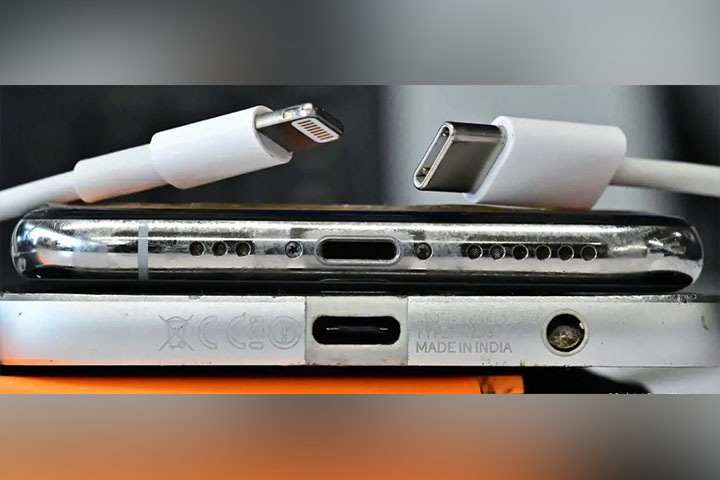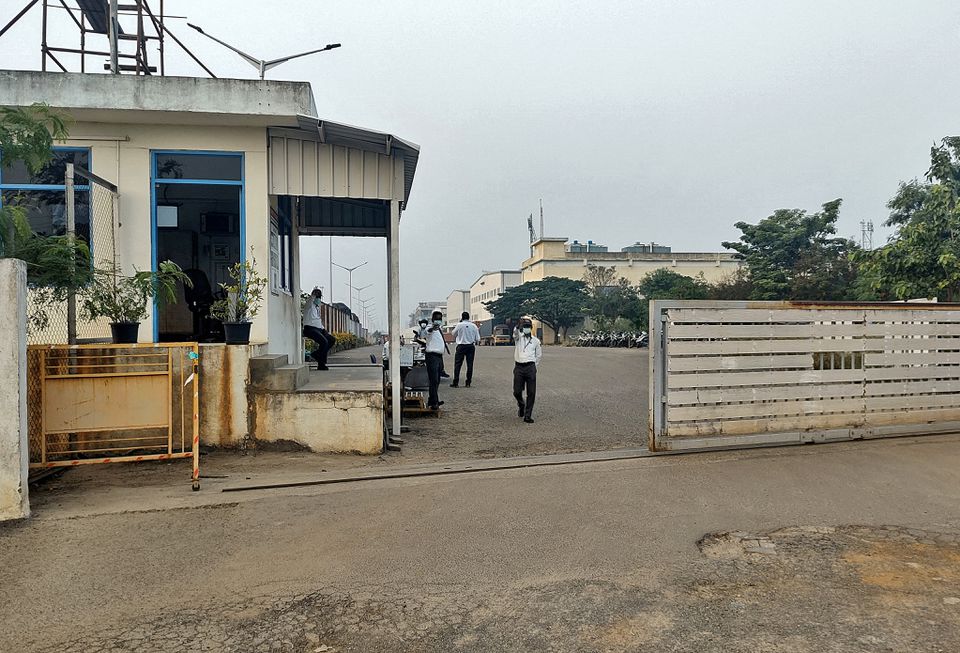Every fourth iPhone will be made in India by 2025, says JP Morgan analyst
Every fourth iPhone will be made in India by 2025 as per J.P. Morgan Analysts' reading of the last month and Apple Inc recently announced its plan to produce 5 per cent of latest model - iPhone 14 this year in India is much earlier than anticipated.
It is considered that this is the tech giant's strategy to diversify manufacturing and relocating its plant outside of China amid mounting geopolitical tensions and the global supply chain "de-risking" which is underway because of China's "zero-Covid" policy, but India is the desired destination shows a significant milestone in the history of the company and India's preparedness, past performance especially its remarkable resilience during and after the second wave of Covid-19 and competency as well.
It is a known fact that an overwhelming majority of the world's electronics and electrical equipment and manufacturing has remained limited to a few select countries like China.
Apart from the well-researched factors like a cheaper and larger workforce, it has also been so because of business-friendly ecosystem in such nations. However, with the looming pandemic and supply chain constraints that were seen over the last couple of years, the detrimental effects of any industry's overdependence on China or any one nation for that matter were clearly seen by the world.
Severely hampering the interests of the larger population, the disturbances in the lone supply chain from China has had a domino effect as well. Many countries far-off have had to pay a heavy price. Taking lessons from what the globe faced in these last couple of years, the world has been actively trying to secure other locations and countries to establish their manufacturing units and usher in a new era of electronics manufacturing and equipment as well.
Over the past few years, India has made rapid strides in the manufacturing sector as well as the electronics industry segment as part of its resolve to not remain dependent on the thin supply chain emanating from China. The hugely-successful tech and innovation giant Apple announced that their biggest unit to manufacture iPhones will be coming up in Hosur, Bengaluru employing about 60,000 people single-handedly. Of these, the first 10 per cent i.e. 6,000 employees would be tribal women from Jharkhand who have undergone training in making these select iPhone mobile devices. This further provides opportunities to not only rural folk but also the tribal sisters that has remained outside the mainstream until now.
In this context, it is not a surprise that Apple's major supplier Foxconn has recently announced its collaboration with the Indian giant Vedanta to establish a semiconductor manufacturing unit in Gujarat. With this plant functioning, India would enter the elite club of 5 nations that have the ability to manufacture glass and semiconductors as well.
Therefore, it becomes a noteworthy milestone and indeed a revolutionary step that these global giants are finally making their presence felt instead of just seeing potential in India.
"Geopolitics and geo-economics are undergoing a sea change. The world is looking to adopt a China Plus One strategy and India is clearly in a sweet spot. This is India's moment," said Anil Agarwal, the Chairman of Vedanta.
Following the mounting geopolitical tensions emanating from China and the consequent cut in production of mobile devices by multiple non-Chinese tech platforms, tech and business analysts have reported that the tech giant Apple was looking for ways to move about 5 per cent of iPhone production and 25 per cent of all Apple production including of Mac, iPad, Apple Watch and Airpods, away from China towards India - the second-biggest smartphone market in the globe.
This is a result of dampened sales outlook, fears of an incoming recession as well as the efforts of tech giants to shift production towards more peaceful and stable systems like India. From an industries and manufacturing point of view, India has become much more lucrative than earlier with new-age policies and business outlook apart from reduced red-tapism and streamlined single-window clearances amidst the erstwhile bureaucratic hurdles in place. This single step would be able to create a huge ecosystem for India's ancillary industries as well.
India, which is world's fifth largest economy, has been striving hard to position itself as an attractive manufacturing and exports hub for multinationals.
Slashing the corporate tax rates in September 2019, India's Finance Minister Nirmala Sitharaman had said: "If Apple and its entire ecosystem move to India, it will have a greater effect on other companies" and it happened. The rising focus on India can be attributed to India's operating conditions and cost competitiveness in terms of value. In addition, the country has proven success in meeting outsourcing requirements that laid favourable ecosystem for MNCs. It has earned the trust of several nations around the world with true spirit of hard work, professionalism and ethical practices. It has a large domestic market and plentiful low-cost talent pool.
Apple Inc. has been manufacturing iPhones at Foxconn's Sriperumbudur factory in India's southern state of Tamil Nadu since 2017. Apple gets iPhones made by electronic giants - Foxconn, Wistron and Pegatron in India. Apple has already outsourced the making of iPhones India to Tata Electronics' Plant in Hosur that is expanding its facility and roping in one of the contract manufacturer of iPhone. Now, India is all set to get the biggest Apple Inc. iPhone manufacturing unit in the same town.
In furtherance of the announcement that the workforce at the manufacturing unit would quadruple over the next couple of years, the expansion of current facilities and scaling up of production output have also been reported by various sections of the media. In turn, this is surely bound to lead to further investment and the establishment of many new ventures as well. With the potential to improve livelihoods of thousands of individuals as well as put India on the global electronics map, the government has been ramping up support for its agenda of self-reliance or atmanirbharta through many such government policies and regulations as well.
With a renewed focus on research & development in this sector, this inward-looking approach of the Indian government has ensured that our domestic manufacturing capabilities are given enough of a support to stand up and deliver in case the need so arose. Playing a significant role in innovation, this effort to develop India into a manufacturing hub with an entrepreneur-friendly ecosystem would help both the nation and the world as well.
Source: Business Standard
23 Nov 2022,18:49




















 Live Tv
Live Tv


